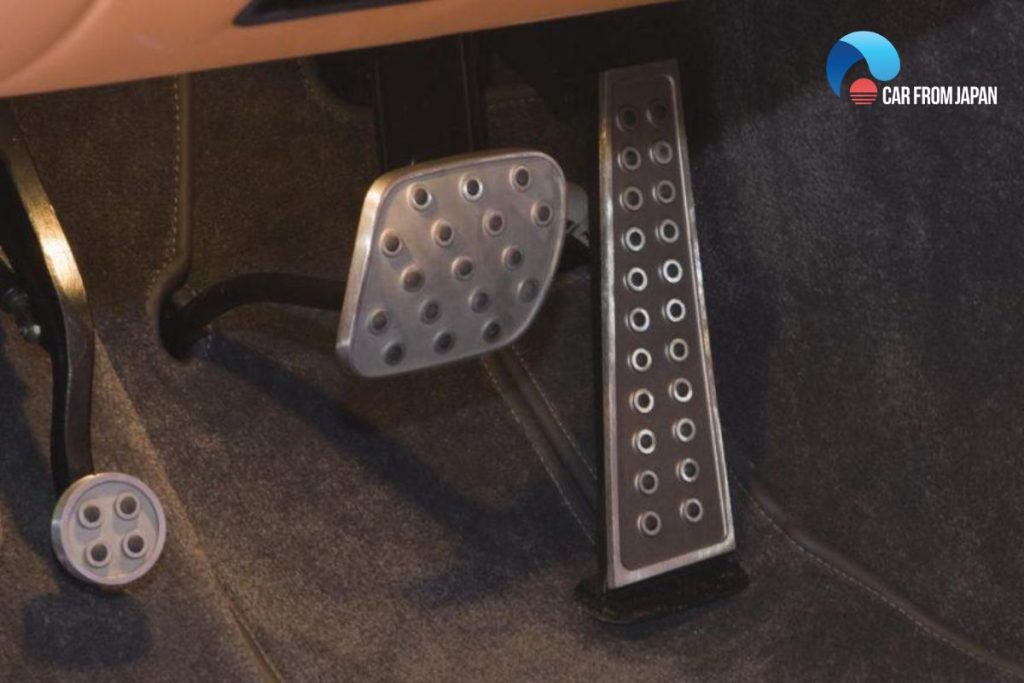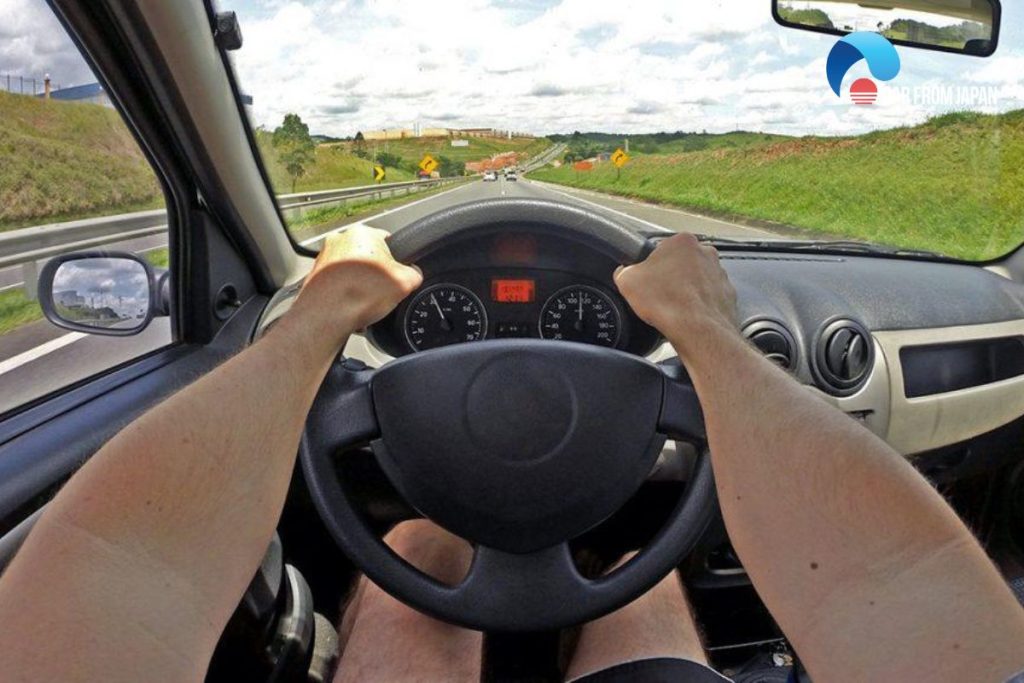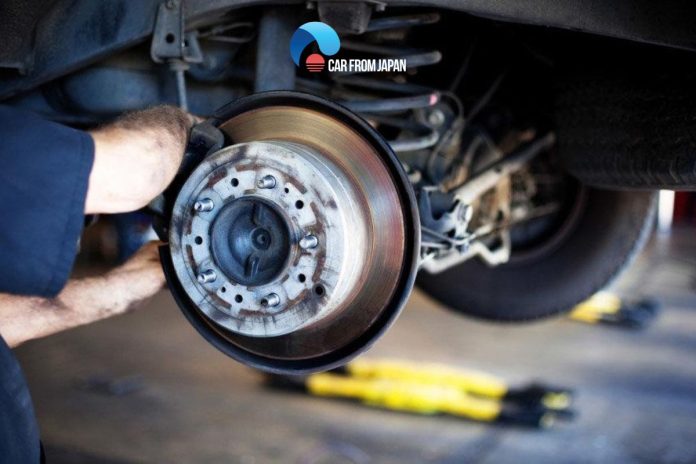Driving with an unsafe brake system is like playing with fire because there are always risks of accidents.
Fortunately, automobiles give some clear signals when the brakes are due. If you know about the signs of unsafe brakes system, it will be easier to take it to timely servicing so that it stays functional for years.
For that reason, in this article we will discuss and specifically show you 05 signs of unsafe brakes that you should put in mind while driving.
Contents
- The Signs Of Unsafe Brakes System
- What Should You Do?
- FAQs on Unsafe Brake System
- Why does my car pull to one side only when braking?
- Why do my brakes work fine once – then feel weak on the second press?
- Can a burning smell after heavy braking be normal?
- Why does my brake pedal feel “spongy” even after a fluid top-up?
- Can hearing a metallic click or pop when braking be a serious warning?
The Signs Of Unsafe Brakes System
Like all other components, brake parts have an average lifespan and need replacement after that period.
They also need regular servicing to ensure safe driving and avoid major breakdowns. Look out for these five warning signs of unsafe brakes system to have your own fixing methods.
The Brake Light Is On
It’s one of the common brake problems that indicate nothing more than just a routine inspection.
Nevertheless, it might be a warning sign that signals a serious issue. There are two lights on the dashboard, one is for the ABS and the other is for the main brake framework.
Your vehicle can still function normally after the failure of the ABS components. However, when the brake light is on, you should pay attention.
Beware Of The Spongy Pedal

One of the most common signs of unsafe brakes. The pedal should be firm, and there should not be anything feel unusual when you apply the brakes.
Conversely, if it feels squishy whenever you push it, the hydraulic system could be the reason.
Check it for damaged calipers, failing wheel cylinders, the air in the lines, or a weak flex line as these are the possible cases for brake system issues.
The Hard Pedal
On the contrary, finding it too hard to push is not good news too. The vehicles mainly use one of the two types of power assist mechanism – hydraulic and vacuum. The failure of this system will create the stated problem.
You have to deal with these signs of unsafe brakes system if the hydraulic boosters run out of fluid, leak, or jam internally.
On the other hand, the vacuum system can create problems because of a blocked or disconnected line, a rip in the brake booster, or a hole in the diaphragm.
See More: The Procedure To Bleed The Car Brakes
Treat The Noises As Soon As Possible
Your brake will warn you about potential issues with different kinds of sounds. That would be one of the most common signs of unsafe brakes.
The brake shoes or pads are likely to be the culprits if your car makes squealing, grinding, screeching, or other types of deafening noises.
If you don’t treat them in time, be prepared to shell out a huge amount of money for worn pads and other damaged components.

Don’t Ignore The Vibrations Too
Some parts of the rotors can be hotter than the rest in case of overheated brakes. These spots contract more than the remaining surface, leading to a bent or distort rotor.
The steering wheel or the brake pedal will create vibrations if such thing occurs. The same thing can happen for a poor steering alignment too.
What Should You Do?
The brake is the most important safety mechanism on a car. You have to keep it at the top of the condition to have the best performance from your vehicle.
So, don’t ignore any of the symptoms of an unsafe brake system. Take the car to a repair shop immediately to get the problem checked out.
FAQs on Unsafe Brake System
Why does my car pull to one side only when braking?
Likely a sticking caliper, uneven pad wear, or brake fluid contamination, all signs of imbalance in the brake system that can reduce control during emergencies.
Why do my brakes work fine once – then feel weak on the second press?
This “pedal fade” can indicate a failing master cylinder or boiling brake fluid from overheated brakes, both unsafe conditions.
Can a burning smell after heavy braking be normal?
Only briefly. Persistent burning smells may mean overheated pads, dragging calipers, or fluid leaks onto hot components.
Why does my brake pedal feel “spongy” even after a fluid top-up?
Air in the brake lines, moisture-contaminated fluid, or worn rubber hoses can make the pedal soft – a safety hazard even with full fluid levels.
Can hearing a metallic click or pop when braking be a serious warning?
Yes. It can indicate loose caliper hardware, worn pad retainers, or cracked brake components, leading to sudden brake failure.
So for the conclusion, we have finished our talk about common signs of unsafe brakes systems.
If you are interested in our car maintenance that we have shown, feel free to follow us to catch up with these updated daily articles!




Hello
Guide on cleaning drums for brake pads…
I have that problem of vibration in wheel steering and pedal . But I would like to have maintained to normal. It Toyota Harrier